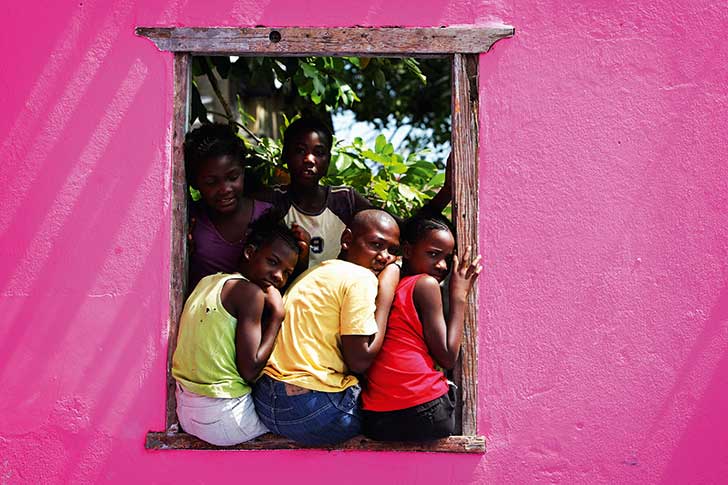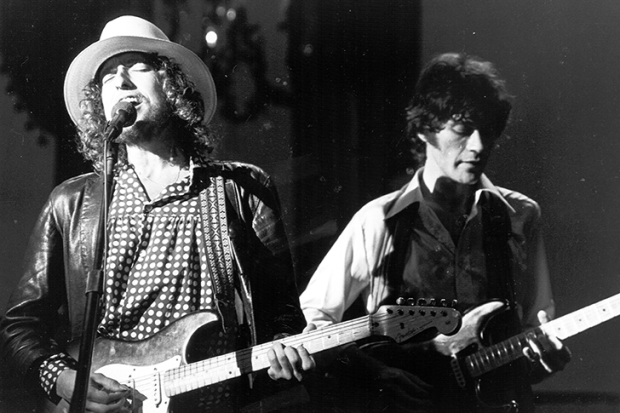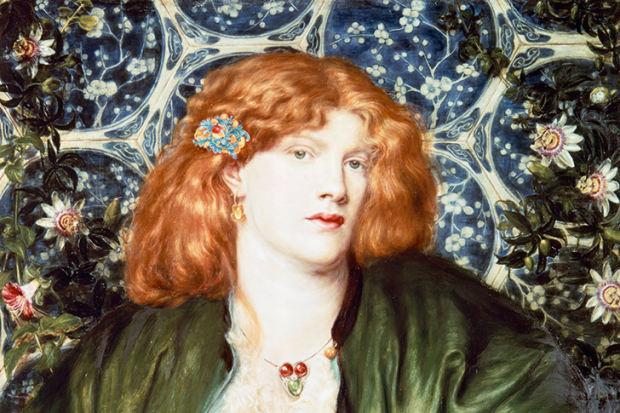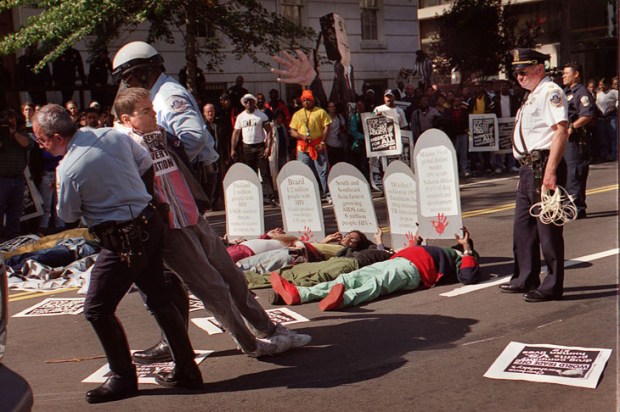‘Short of writing a thesis in many volumes,’ Patrick Leigh Fermor wrote in his preface to The Traveller’s Tree, ‘only a haphazard, almost a picaresque, approach can suggest the peculiar mood and tempo of the Caribbean and the turbulent past from which they spring.’
Island People, Joshua Jelly-Schapiro’s first book, is an academic picaresque. This unlikely hybrid might be the ideal vehicle for a trip around the ‘American lake’; the Caribbean’s cultures and peoples are also hybrids, legacies of unlikely crossings.
The masters, slaves, indentured labourers and merchant middlemen of the Caribbean were the first truly modern societies, drawn and dragged to a hellish paradise solely to serve a global economy. Since independence, their descendants have continued to serve and suffer for it, by making the modern Middle Passage as musicians, cocaine mules and migrant workers, or staying on their islands, indentured to tourism as barmen, maids and taxi drivers.
Island People, like its subject, is expansive and disorderly, a jumble of languages and nations with alternating moods of poetry and violence. It is written as a travelogue: from Jamaica, Cuba and Puerto Rico, the collective home of 90 per cent of the Caribbean islands’ population, then down the curve of the Antilles to Trinidad, off the coast of Venezuela. But the narrative suffers shifts of mood and tempo akin to those of inter-island ferry services in the low season.
There are three Jelly-Schapiros: a postcolonial academic, a gonzo tourist and an anthropological essayist. The first plagiarises the ideas of C.L.R James, the second plagiarises the style of Geoff Dyer, and the third often plagiarises Jelly-Schapiro himself by recycling his numerous essays, some of which were published as long ago as 2010. You never know who will lead your tour group on which island, or when the bus will plunge off the coast road onto a rough track, or whether you will find Edward Said or a cartoon Rasta at the end of it.
The best of this trio, the anthropological essayist, is at home in the ‘exultant immodesty’ of Havana. His unpicking of the weave of slavery, race, religion and music that make cubanidad (Cuban-ness) is educated, his recombination of these threads skilful. His assessment of the decaying Castro regime is fair, too. While Jamaicans sleep behind ‘concertina wire and Rottweilers’, the Habaneros ‘snoozed calmly behind nothing but ferns’. Yet Cubans are still prisoners, afflicted by ‘ennui’ and shortages of everything apart from ‘time and nice weather’.
The essayist’s academic companion excels on Frantz Fanon’s Martinique. Cuba is unnaturally isolated from the world, but Martinique is excessively connected, a French départment where the bookies offer odds on races at Chantilly. The ‘whole modern arc’ of the French Antilles can be traced through its literature, but its language belongs to white Paris. The obvious examples are Fanon, whose celebrity derived from Sartre’s patronage and the Algerian war, and footballers like Thierry Henri and Lilian Thuram. But Jelly-Schapiro also gives useful accounts of the double bind of independence and dependency in the works of poet Aimé Césaire and novelist Patrick Chamoiseau.
Many readers will not reach these chapters, however, because the worst comes first. The gonzo tourist narrates the opening section on Jamaica. In search of weed and ‘badness’, Josh recites Bob Marley’s hagiography whitely. He smokes herb with Countryman, the Rasta who brought Marley to Chris Blackwell’s attention; with Bongo, the stoned sexton who keeps Marley’s grave; and with the ‘bredren’ who gather on the late Peter Tosh’s birthday. The trifecta of modern turbulence — political corruption, gang violence, and the drug trade — are more celebrated than explained.
The fog of weed is as emblematic of its author’s prejudices as the cloud of bauxite dust in V.S. Naipaul’s Guerrillas, only less instructive. There are jokes about black men’s ‘colossal genitals’, fat black women, the hairy chin of Peter Tosh’s nonagenarian mother, and taxi drivers with names like Desmond Theophilus Benjamin. A 2010 interview with the ‘slack’ singer Lady Saw is reheated for the punch line that in 2012, following a ‘raunch sabbatical’, she has returned to ‘cultural relevance’ with her new single, ‘Fuck Me With My Heels On’. Jelly-Schapiro fails to mention Lady Saw’s epiphany of 2015. She has reverted to her real name and is now singing gospel music as Minister Marion Hall.
There are errors of basic fact, too. Jelly-Schapiro thinks ‘implicacions’ is French, that the Schengen Treaty ‘created the EU’, that the official residence of the ‘limey bureaucrat’ ambassador to Barbados is a ‘manse’, and that Elizabeth I was on the throne in 1625. If Chris Blackwell’s mother Blanche reads Island People, she may be alarmed to discover that she is dead. If the Caribbean peoples are doomed to repeat their turbulent past because they cannot forget it, the least a historian can do is remember it correctly.
Got something to add? Join the discussion and comment below.
Get 10 issues for just $10
Subscribe to The Spectator Australia today for the next 10 magazine issues, plus full online access, for just $10.
You might disagree with half of it, but you’ll enjoy reading all of it. Try your first month for free, then just $2 a week for the remainder of your first year.














Comments
Don't miss out
Join the conversation with other Spectator Australia readers. Subscribe to leave a comment.
SUBSCRIBEAlready a subscriber? Log in